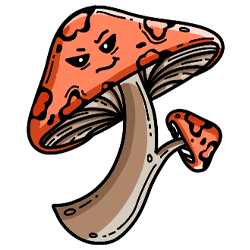dependency_handler.py
ofrak.service.dependency_handler
DependencyHandler
Stateless handler for dealing with creating and invalidating dependencies. Intended for one-time use in a component, or possible re-use in a resource.
create_component_dependencies(self, component_id, component_version)
Register dependencies between the component and the resources it interacts with.
This may not even be necessary since Resource.add_attributes does this anyway...
Source code in ofrak/service/dependency_handler.py
def create_component_dependencies(
self,
component_id: bytes,
component_version: int,
):
"""
Register dependencies between the component and the resources it interacts with.
This may not even be necessary since Resource.add_attributes does this anyway...
"""
self._validate_resource_context_complete()
for resource_id in self._component_context.resources_created:
new_resource_m = self._resource_context.resource_models[resource_id]
for attributes in new_resource_m.attributes.keys():
new_resource_m.add_component_for_attributes(
component_id, component_version, attributes
)
create_resource_dependencies(self, component_id)
Register dependencies between a resource with some attributes and the resources which were accessed in the context where these attributes were added.
When a component runs, this method is called to record what data was accessed by the component and what resource attributes from other resources were accessed within that component. These registered dependencies allow for OFRAK to not rerun analyzers when the resource and its dependencies have not changed.
Whenever a Modifier is run, these resource attribute dependencies are invalidated so as to force analysis to be rerun.
Parameters:
| Name | Type | Description | Default |
|---|---|---|---|
component_id |
bytes |
required |
Source code in ofrak/service/dependency_handler.py
def create_resource_dependencies(
self,
component_id: bytes,
):
"""
Register dependencies between a resource with some attributes and the resources which
were accessed in the context where these attributes were added.
When a component runs, this method is called to record what data was accessed by the
component and what resource attributes from other resources were accessed within that
component. These registered dependencies allow for OFRAK to not rerun analyzers when the
resource and its dependencies have not changed.
Whenever a [Modifier][ofrak.component.modifier.Modifier] is run, these resource attribute
dependencies are invalidated so as to force analysis to be rerun.
:param bytes component_id:
"""
self._validate_resource_context_complete()
resource_dependencies = []
# Create dependency for each attribute on newly created resources
for resource_id in self._component_context.resources_created:
new_resource_m = self._resource_context.resource_models[resource_id]
for attributes in new_resource_m.attributes.keys():
resource_dependencies.append(
ResourceAttributeDependency(
resource_id,
component_id,
attributes,
)
)
# Create dependency for each new attribute on modified resources
for resource_id in self._component_context.modification_trackers.keys():
modified_resource_m = self._resource_context.resource_models[resource_id]
for attrs_added in modified_resource_m.diff.attributes_added.keys():
resource_dependencies.append(
ResourceAttributeDependency(
resource_id,
component_id,
attrs_added,
)
)
# Add dependencies to all resources which were accessed
for resource_id, access_tracker in self._component_context.access_trackers.items():
if resource_id in self._component_context.resources_created:
# Avoid all the newly created components depending on each other
continue
accessed_resource_m = self._resource_context.resource_models[resource_id]
merged_accessed_ranges = Range.merge_ranges(access_tracker.data_accessed)
# Add attributes dependency on all accessed attributes
for attributes_accessed in access_tracker.attributes_accessed:
for resource_dependency in resource_dependencies:
accessed_resource_m.add_attribute_dependency(
attributes_accessed, resource_dependency
)
# Add data dependency on all accessed data
for accessed_range in merged_accessed_ranges:
for resource_dependency in resource_dependencies:
accessed_resource_m.add_data_dependency(resource_dependency, accessed_range)
_invalidate_dependencies(self, handled_dependencies, unhandled_dependencies, resources_modified)
async
private
Invalidate the unhandled resource attribute dependencies.
Parameters:
| Name | Type | Description | Default |
|---|---|---|---|
handled_dependencies |
Set[ofrak.model.resource_model.ResourceAttributeDependency] |
A set of dependencies that have already been invalidated |
required |
unhandled_dependencies |
Set[ofrak.model.resource_model.ResourceAttributeDependency] |
A set of dependencies that should be invalidated |
required |
Source code in ofrak/service/dependency_handler.py
async def _invalidate_dependencies(
self,
handled_dependencies: Set[ResourceAttributeDependency],
unhandled_dependencies: Set[ResourceAttributeDependency],
resources_modified: Set[MutableResourceModel],
):
"""
Invalidate the unhandled resource attribute dependencies.
:param Set[ResourceAttributeDependency] handled_dependencies: A set of dependencies that
have already been invalidated
:param Set[ResourceAttributeDependency] unhandled_dependencies: A set of dependencies
that should be invalidated
"""
if len(unhandled_dependencies) == 0:
return
dependent_resource_ids = {
dependency.dependent_resource_id for dependency in unhandled_dependencies
}
deleted_dependent_ids = {
r_id
for r_id, currently_exists in zip(
dependent_resource_ids,
await self._resource_service.verify_ids_exist(dependent_resource_ids),
)
if not currently_exists
}
await self._fetch_missing_resources(
dependent_resource_ids.difference(deleted_dependent_ids)
)
# Invalidate the resources' attributes referred to by the unhandled_dependencies
next_unhandled_dependencies = set()
for dependency in unhandled_dependencies:
# It's possible that the attribute was already invalidated from an earlier run
if dependency in handled_dependencies:
continue
# If the dependent resource was deleted, don't need to propagate dependency invalidation
if dependency.dependent_resource_id in deleted_dependent_ids:
handled_dependencies.add(dependency)
continue
try:
resource_m = self._resource_context.resource_models[
dependency.dependent_resource_id
]
except KeyError as e:
missing_model = await self._resource_service.get_by_id(
dependency.dependent_resource_id
)
resource_m = MutableResourceModel.from_model(missing_model)
# Invalidate the attributes on the resource
handled_dependencies.add(dependency)
# The component id is not necessarily present. It could have been invalidated already
# by a previous patch that impacted other resources that this resource depends on.
if resource_m.get_component_id_by_attributes(dependency.attributes):
resource_m.remove_component(dependency.component_id, dependency.attributes)
self._component_context.mark_resource_modified(resource_m.id)
resources_modified.add(resource_m)
# Find other dependencies to invalidate due to the invalidation of the attributes
invalidated_dependencies = set()
for next_dependency in resource_m.attribute_dependencies[dependency.attributes]:
# Make sure the dependency wasn't already handled
if next_dependency not in handled_dependencies:
LOGGER.debug(
f"Invalidating attributes {next_dependency.attributes.__name__} from "
f"component {next_dependency.component_id!r} on resource "
f"{next_dependency.dependent_resource_id.hex()} due to "
f"attributes {dependency.attributes.__name__} on resource"
f" {dependency.dependent_resource_id.hex()} being invalidated"
)
invalidated_dependencies.add(next_dependency)
for invalidated_dependency in invalidated_dependencies:
resource_m.remove_dependency(invalidated_dependency)
self._component_context.mark_resource_modified(resource_m.id)
resources_modified.add(resource_m)
next_unhandled_dependencies.update(invalidated_dependencies)
await self._invalidate_dependencies(
handled_dependencies,
next_unhandled_dependencies,
resources_modified,
)
